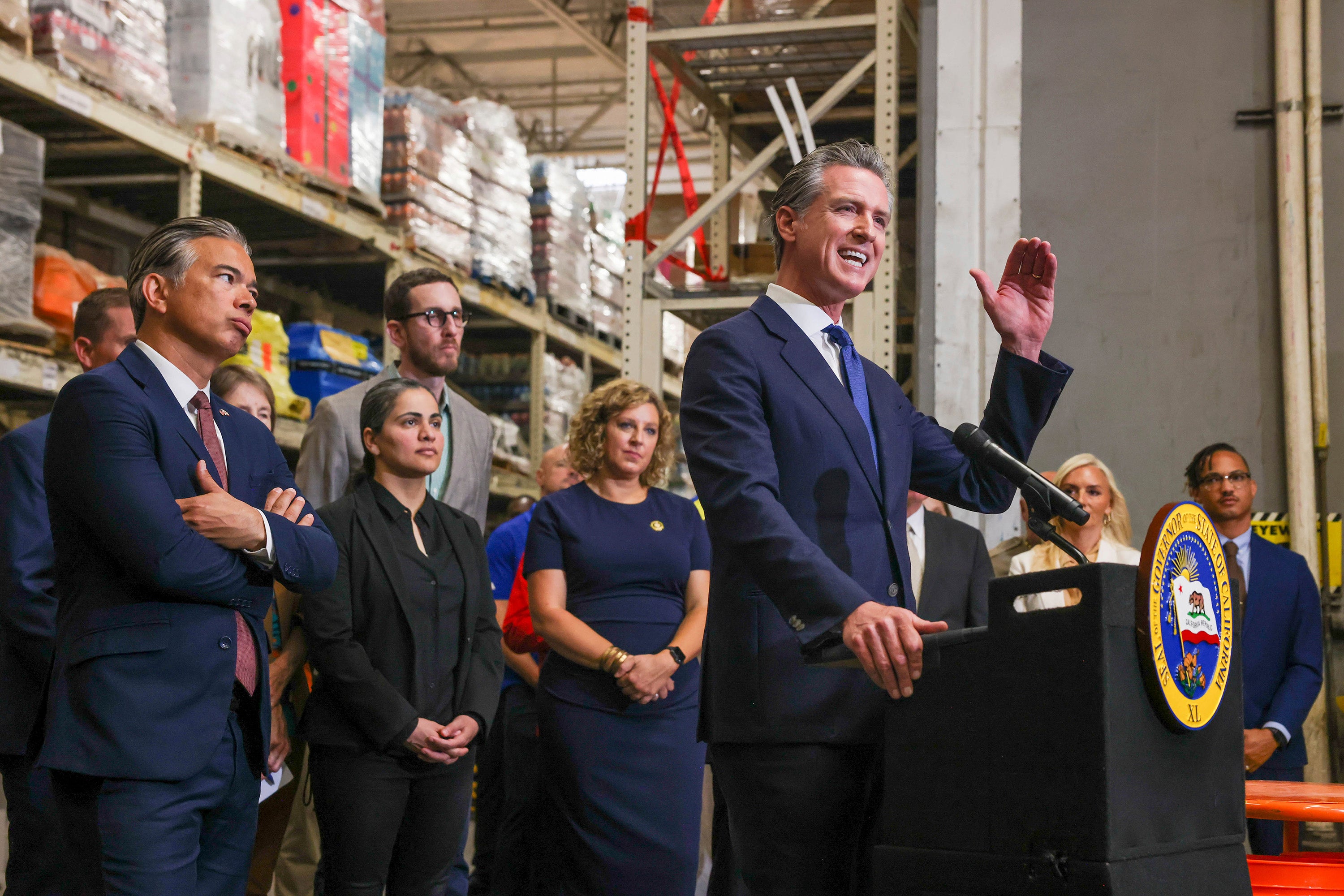California governor signs a bill bringing back harsh penalties for smash-and-grab robberies
California Gov. Gavin Newsom signed a bill Thursday bringing back tough criminal penalties targeting large-scale stealing schemes and smash-and-grab robberies

California Gov. Gavin Newsom signed a bill Thursday bringing back tough criminal penalties targeting large-scale stealing schemes and smash-and-grab robberies that have fueled voter frustration across the state.
The new law requires prosecutors to start imposing harsher sentences again for those who damage or destroy property valued at more than $50,000 while committing a felony. A similar law expired in 2018. The new law will sunset by 2030.
“California already has some of the strictest retail and property crime laws in the nation — and we have made them even stronger with our recent legislation,” Newsom said in a statement. “We can be tough on crime while also being smart on crime — we don’t need to go back to broken policies of the last century.”
The decision to bring back tough penalties comes as Democratic leaders continue to work to prove that they are tough enough on crime while trying to convince voters to reject a ballot measure that would bring even harsher sentences for repeat offenders of shoplifting and drug charges.
While shoplifting has been a growing problem, large-scale, smash-and-grab thefts, in which groups of individuals brazenly rush into stores and take goods in plain sight, have become a crisis in California and elsewhere in recent years. Such crimes, often captured on video and posted on social media, have brought particular attention to the problem of retail theft in the state.
The new law is part of a bipartisan legislative package of about a dozen bills aiming to crack down on thefts, making it easier to go after repeat shoplifters and auto thieves and increase penalties for those running professional reselling schemes.
“Violent ‘sledgehammer crimes’ and flash-mob attacks by organized gangs must stop now,” Assembly Speaker Robert Rivas, who authored the bill, said in a statement. “Our business owners and workers should not have to live in fear that these crimes will come to their doorstep.”
The measure is also supported by the California Retailers Association, which said the new penalties would serve as “a deterrent against ‘smash and grabs’ and retail crime.”
But opponents, including criminal justice advocates and public defenders, said the new law will result in more people behind bars for non-retail theft crimes. The measure increases prison time for a wide range of felony charges, they said. That means a person could receive a tougher sentence for offenses such as damaging vehicles while driving under the influence under the new law.
They also criticized the new law for modeling after a plan proposed in a tougher-on-crime ballot initiative, which Newsom and Democratic lawmakers spent months lambasting and unsuccessfully fighting to keep off the November ballot. The new law will expire in five years, while the ballot measure proposes a plan to make the harsher penalties permanent.
“If we’re opposed to it being permanent, why aren't we opposed to it being temporary?” said Taina Vargas, executive director of Initiate Justice Action, about the new law. “This makes it apparent that, you know, certain individuals in the Legislature and the governor just want to give off the impression of doing something.”
How to tackle crimes in California has become increasingly difficult to navigate in recent years for state Democrats, many of whom have spent the last decade championing progressive policies to depopulate jails and prisons and invest in rehabilitation programs.
As the issue could even affect the makeup — and control — of Congress, some Democrats broke with party leadership and said they supported Proposition 36, the tough-on-crime approach.
Newsom’s administration has spent $267 million to help dozens of local law enforcement agencies increase patrols, buy surveillance equipment and prosecute more criminals. Law enforcement across the state has arrested 6,900 people for retail theft crimes in the first six months of the operation, Newsom's office said Thursday.
It is hard to quantify the retail crime issue in California because of the lack of local data, but many point to major store closures and everyday products like toothpaste being locked behind plexiglass as evidence of a crisis. The California Retailers Association said it is challenging to quantify the issue in California because many stores don’t share their data.
Bookmark popover
Removed from bookmarks